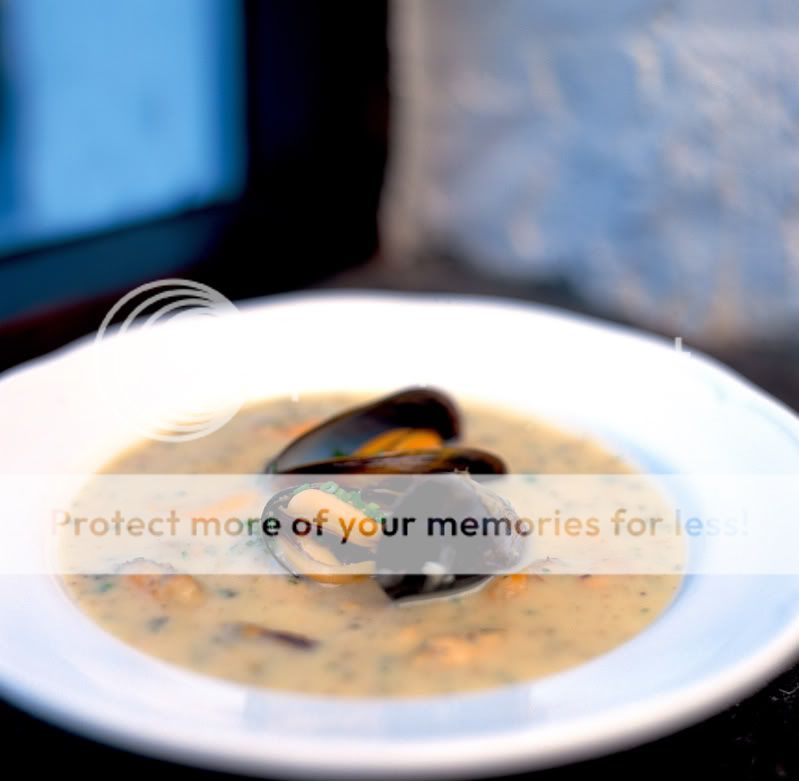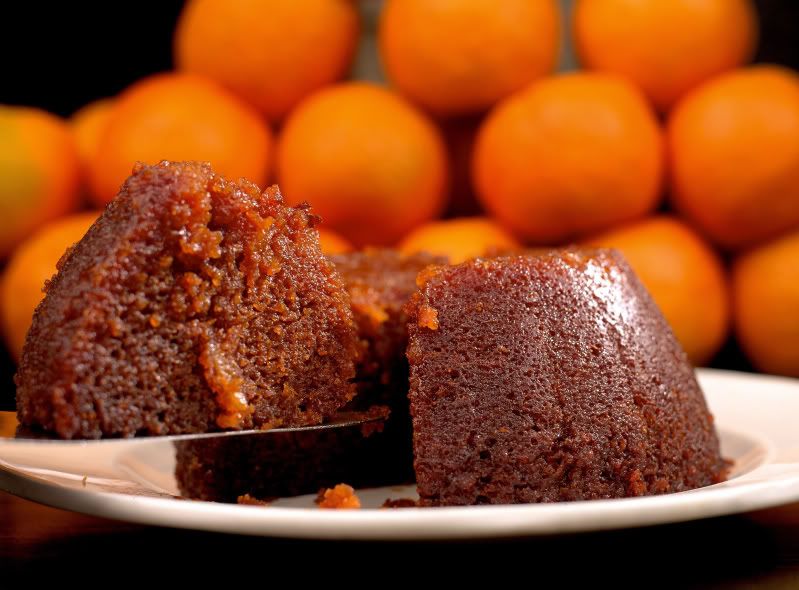On the 25th January each year, the world joins Scotland to celebrate the life and work of Scotland's national bard, Robert Burns, on Burns Night.
Top Scottish chef, Shirley Spear, shares her recipes for the perfect Burns Supper including a mussel brose to start and her famous hot marmalade pudding to accompany the traditional haggis main course.Shirley is an ambassador for Scotland's Year of Food & Drink which is being celebrated until the end of May 2011. She is also a cook book author and owner of the award winning restaurant with luxury accommodation, The Three Chimneys, on the beautiful Isle of Skye.
Have a look at these fabulous Scottish recipes and cook your own Burns Night dinner !
Mussel Brose
Stage One. Cooking the mussels.
Ingredients:
Wash and de-beard 1kg mussels. Discard any that are cracked or open
50 grams Scottish butter
1 medium onion, finely chopped
2 large cloves garlic, finely chopped
1 heaped tablespoon chopped parsley
freshly ground black pepper
200mls dry white wine
100mls water
Method:
Melt the butter in a large pan. You will need a good lid to fit the pan.
Soften the onion and garlic in the hot butter.
Stir in the parsley and add some freshly ground black pepper.
Pour in the wine and water and bring to the boil.
Add all the mussels, lower the heat, cover with close-fitting lid and leave to steam until mussels have opened.
(If you want to serve mussels traditionally, cook them to this stage and serve them in warm bowls with the cooking liquor poured over them. Sprinkle with extra chopped parsley and chives when serving.)
Remove the mussels using a slotted spoon and leave on a large dish to cool.
Strain the cooking liquor through a fine sieve and reserve.
Rinse out saucepan.
Stage Two. Making the brose.
Ingredients:
500 grams potatoes, weighed when peeled and diced. Choose a floury variety that is good for mash.
200 grams onion, weighed when peeled and chopped quite small.
50 grams slightly salted butter.
2 rounded tablespoons medium oatmeal.
Approximately 250mls fresh milk plus 150mls double cream.
Freshly ground salt, black pepper, chopped chives and parsley, to finish.
Method:
Melt the butter until hot and foamy.
Add onions and cook until soft.
Add potatoes and stir together with the onion. Allow to cook gently for a few minutes. Pour in the strained mussel liquor. Bring to boil and then simmer with the lid on for at least 20-30 minutes.
Add oatmeal, stir and simmer for a further 5-10 minutes.
Meanwhile, remove the cooled mussels from their shells and reserve in a bowl. Retain a few whole for garnish.
When brose is cooked, add fresh milk and liquidise.
Stir in shelled mussels and the double cream.
Reheat and season to taste. Be careful, as salt may not be necessary.
Adjust the thickness of the brose at this stage. You may need to add a little more cream or a dash of white wine and water.
Finish with freshly chopped chives and parsley stirred through the brose.
Haggis, Bashed Neeps & Tatties
Haggis can be bought from good butcher's shops and in many supermarkets. Vegetarian versions are also available so no-one needs to miss out. The haggis is already cooked and just needs some careful re-heating until it is piping hot.
Method:
Bring a pan of water to the boil.
Place the haggis in the pan and turn the heat down immediately. The water should only simmer, not boil as this may burst the case...resulting in a culinary disaster and a 'murdert haggis'. Some haggis come in a 'cook-in bag' to avoid this problem - otherwise wrapping it in foil would help to protect the contents. The length of time it should be gently poached depends on the size of your haggis. As a guide, a 1kg haggis takes around 75 minutes.
Neeps
Peel and quarter the turnip and boil for 25 minutes or until soft.
Drain and mash with a little butter. Add a teaspoon of caster sugar and season to taste with salt and pepper.
Tatties
Peel and quarter the potatoes and boil for 20 minutes or until soft.
Drain and mash with a little butter and milk to get a smooth, creamy consistency. Season to taste with salt and pepper.
The famous Hot Marmalade Pudding
Ingredients:
150gms fine brown breadcrumbs
120gms soft brown sugar
25gms self-raising wholemeal flour (white self-raising would do)
120gms fresh butter, plus extra for greasing the bowl
8 tablespoons well-flavoured, coarse-cut marmalade (homemade is always the best)
3 large eggs
1 rounded teaspoon bicarbonate of soda plus a 1 tablespoon water to mix
Method:
Butter a 3-pint pudding basin well.
Place the breadcrumbs, flour and sugar in a large mixing bowl.
Melt the butter together with the marmalade, in a saucepan over a gently heat. Pour the melted ingredients over the dry ingredients and mix together thoroughly.
Whisk the eggs until frothy and beat gently into the mixture until blended together well.
Last of all, dissolve the bicarbonate of soda in 1 tablespoonful of cold water. Stir this into the pudding mixture, which will increase in volume as it absorbs the bicarbonate of soda.
Spoon the mixture into the prepared basin. Cover it with close-fitting lid, or alternatively, make a lid with circles of buttered greaseproof paper and foil, pleated together across the centre and tied securely around the rim of the basin.
Place the pudding basin in a saucepan of boiling water. The water should reach halfway up the side of the basin. Cover the pan with a close-fitting lid and simmer the pudding for 2 hours. The water will need topping-up throughout the cooking period. Turn out on to a serving dish, slice and serve hot, with fresh cream, ice cream, or - as is done at Three Chimneys - with Drambuie Custard.
Drambuie Custard
This is a proper egg custard flavoured with Drambuie liqueur. It is served warm, poured around the pudding. Alternatively flavours could be added, such as vanilla, ginger, or crushed cardamom, if you prefer. A tablespoonful of fresh ground coffee can be added, which is delicious with hot or cold chocolate desserts.
Ingredients:
275mls fresh milk
275mls fresh double cream
6 egg yolks
100gms caster sugar
2 tablespoons Drambuie liqueur
Method:
Whisk the egg yolks together with the sugar until pale, slightly thick and creamy.
Gently warm the milk and cream until it is just beginning to bubble.
Pour the milk and cream on to the egg and sugar mixture and whisk together.
Return the mixture to the saucepan.
Bring to the boil very slowly, stirring all the time. As soon as it begins to thicken, or coats the back of the wooden spoon, remove from the heat and pour into a bowl or jug for serving.
Stir in the Drambuie, or flavouring of your choice.
Serve immediately. Alternatively, cool the custard quickly in a bowl sitting on ice and refrigerate when cold, until required. The custard can be used cold for assembling a trifle, serving with frozen or chilled desserts, or reheated carefully for serving with a hot pudding.
Other reviews you might be interested in :






Veggie haggis for us tonight!
ReplyDelete